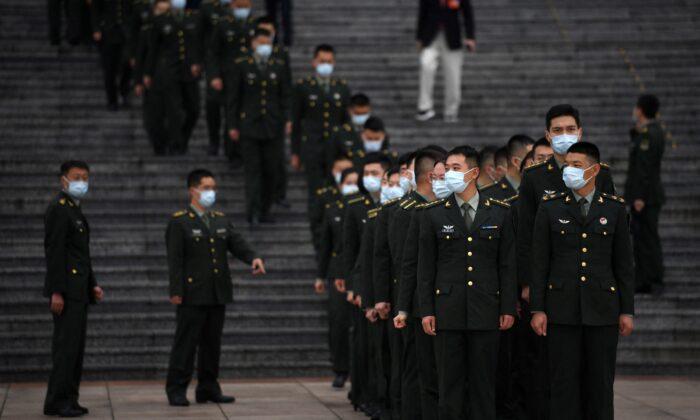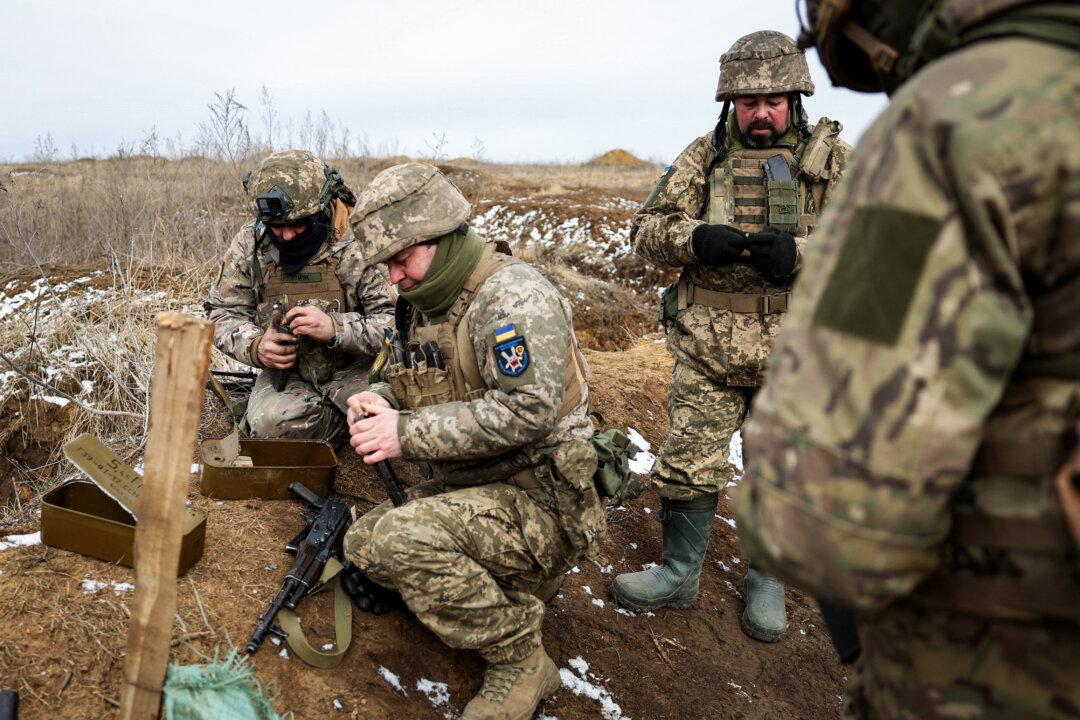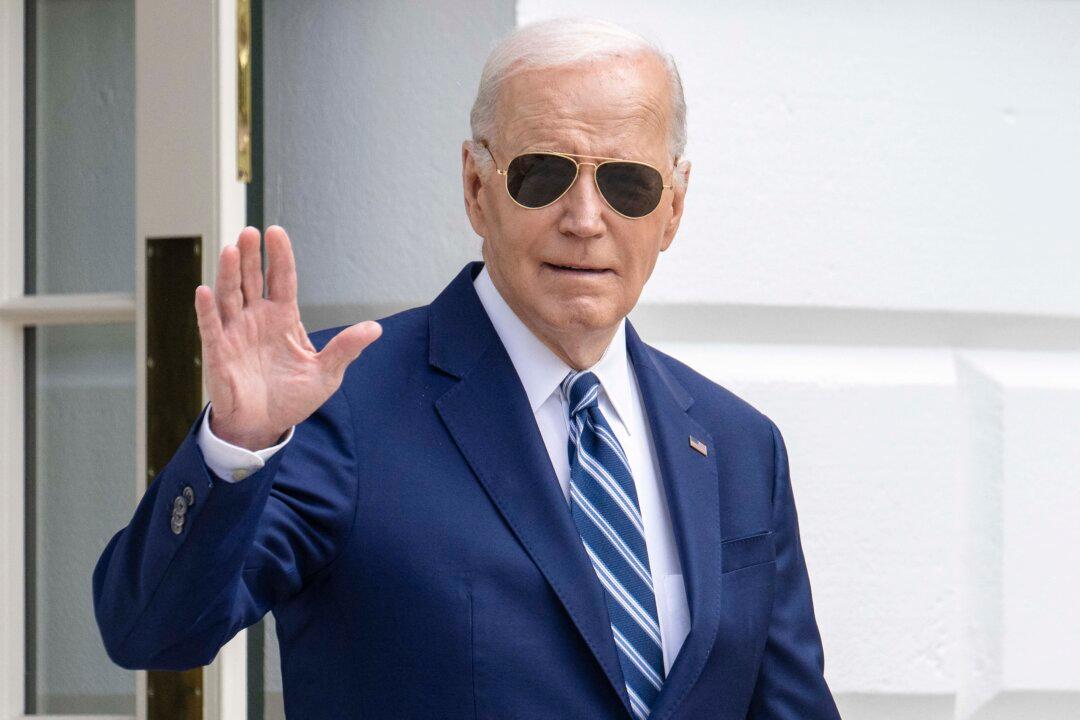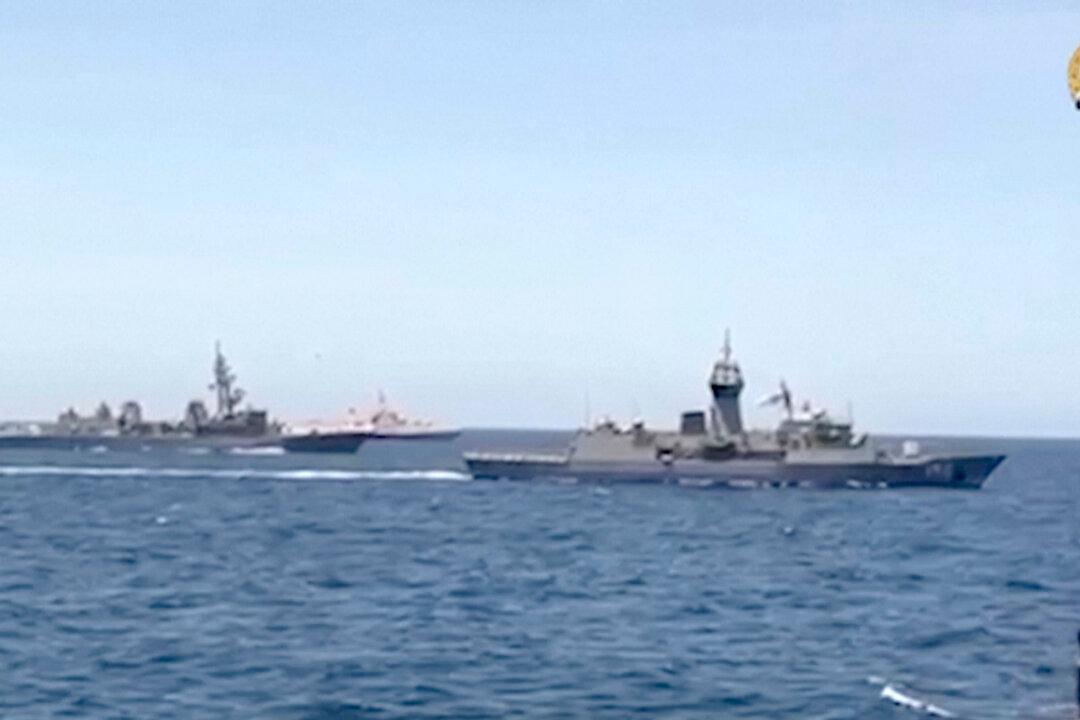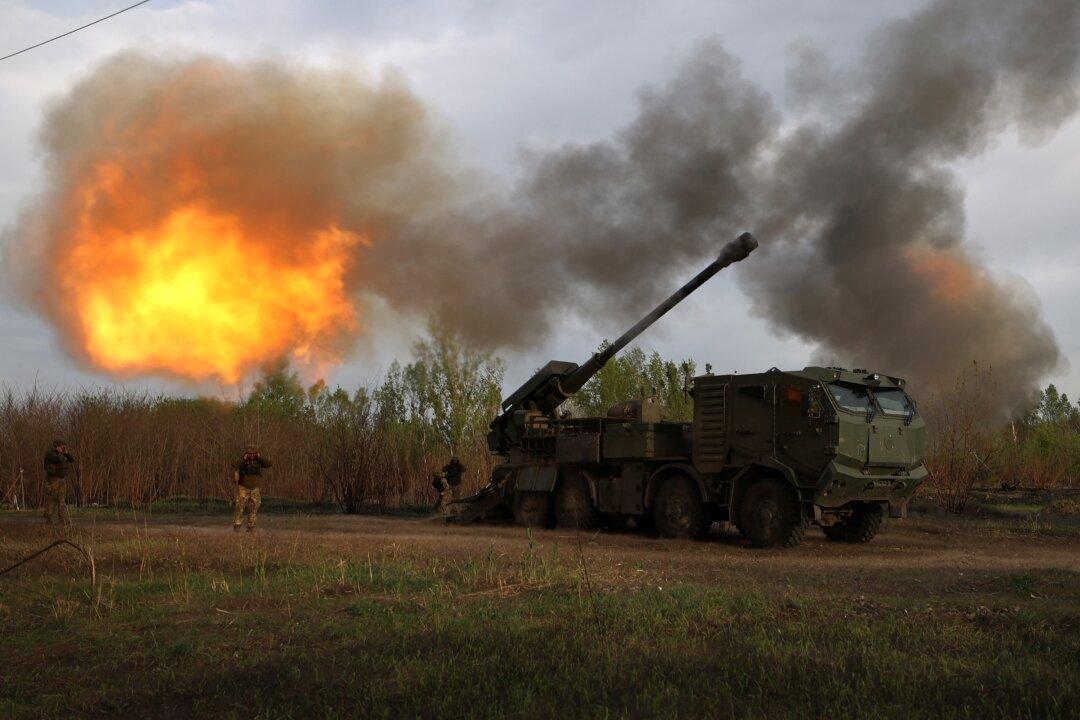China’s military shares a similar weakness to that of Russia’s armed forces which may hamper its efforts to conquer Taiwan should the regime move forward with an invasion, according to a new report.
Notably, it found that many of the Chinese Communist Party’s (CCP) senior military officers lacked joint service experience, and would thus be less able to work with their counterparts in other services.
Officers in the CCP’s military branch, the People’s Liberation Army (PLA), were effectively siloed in their services, with those in the Navy never working with ground forces or air forces, and vice versa.
“Senior PLA officers tend to stay not only within their own services but also in their assigned functional areas,” the report stated. “Operational commanders, for instance, rarely have career-broadening experience in logistics, and vice versa.”
“Future PLA operations could be hampered by officers with narrow perspectives.”
By comparing the top echelon of PLA leaders in 2015 and 2021, the report found that Xi’s reforms “had no impact on the average age, experience, or education of senior leaders.”
That failure comes even though a central goal of the reforms was aimed at developing a more robust joint service, according to the report.
“A cornerstone of PLA reforms in the Xi era was the development of a joint command structure in which theater commanders have peacetime authority over ground, naval, and air forces,” the report stated.
“Nevertheless, this progress does not extend to the assignment system.”
Simply put, senior PLA officers were largely not assigned to joint service commands. Moreover, there was little remedy for this problem as the PLA had no rule to ensure such training took place.
The United States, by comparison, has since 1986 mandated that senior officers become joint-duty qualified through education at Joint Professional Military Education schools and through service in joint-duty assignments.
Rather than enforce interoperability between the services, however, Xi has focused on enforcing ideological conformity and Party loyalty.
“All PLA officers are members of the Chinese Communist Party and must have enough political acumen to demonstrate loyalty to Xi and his agenda,” the report stated.
“Xi has been personally involved in selections through his position as CMC [Central Military Commission] chairman and has increased his control through anti-corruption investigations.”
This course of action had the effect of actually decreasing the number of senior officers with joint experience between 2015 and 2021.
As of last year, the report found, only 56 percent of PLA senior officers had held any joint assignment in the previous decade. A five percent decrease from 2015.
This meant that officers in the PLA were far less likely than their American counterparts to also have developed an expertise in related fields such as logistics, the report found.
“Continued specialization in particular career tracks means that [officers] have relatively deep expertise in particular areas but likely limited awareness of other functional skills,” the report stated, “for instance, operational commanders tend not to have a background in logistics or acquisition.”
In all, the report highlighted that PLA senior officers’ limited engagement and training in joint domain work could have negative effects on military readiness.
PLA cohesiveness could be very low in a complex fighting situation, the report stated, and could mimic the repeated failures from similar weaknesses present in the Russian military during its invasion of Ukraine.
“[F]or militaries to be operationally effective, modernization and reform must be complemented by skilled leaders,” the report stated. “For years, the PLA has complained that its officers suffer from mediocre leadership abilities.”
“Rigidity in PLA assignments could reduce China’s effectiveness in future conflicts—especially those requiring a high level of jointness and adaptability, like the war that Russia launched against Ukraine in 2022—if Chinese military leaders lack perspectives beyond their own service, specialty, and department.”
